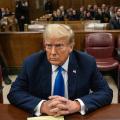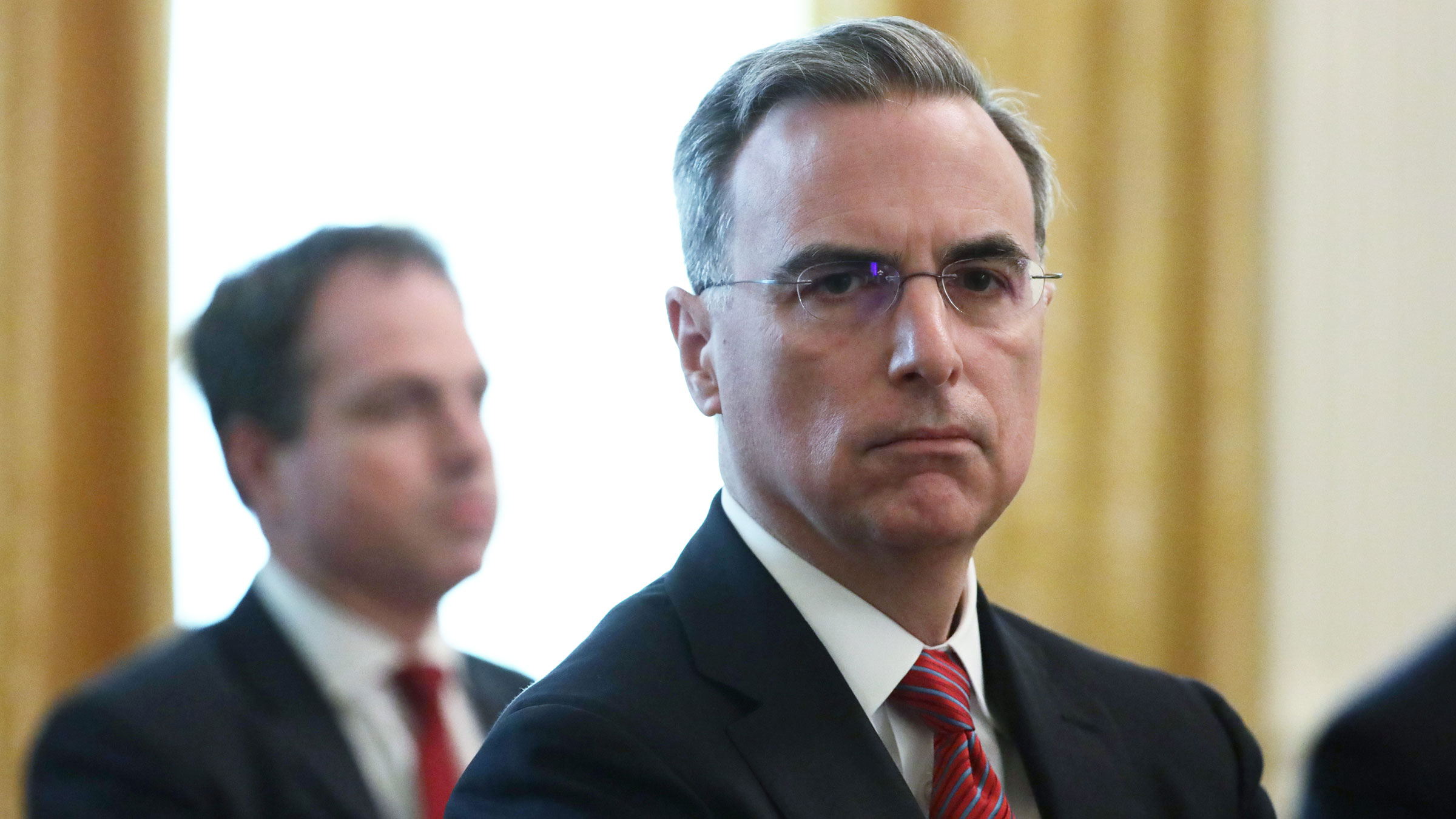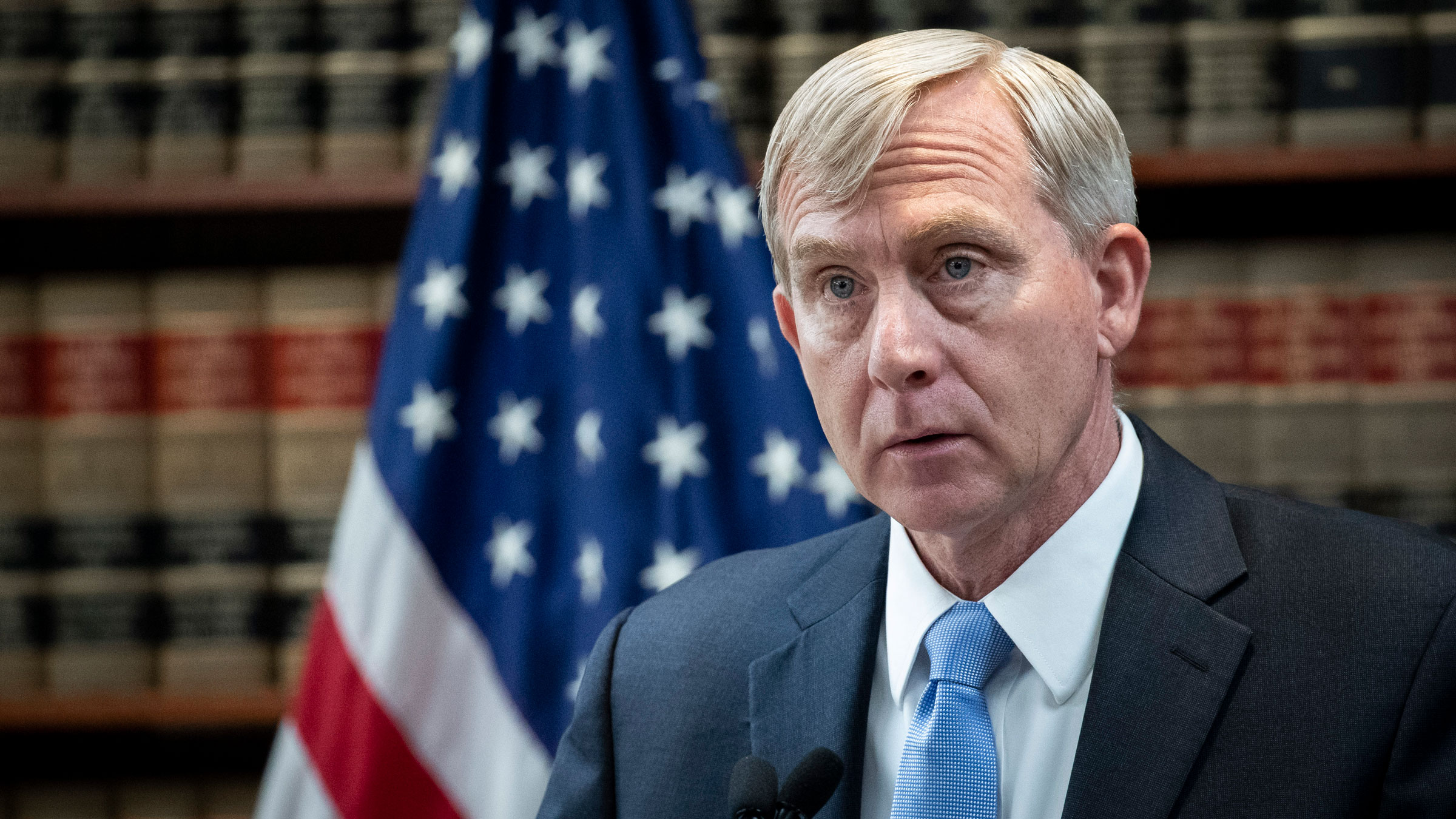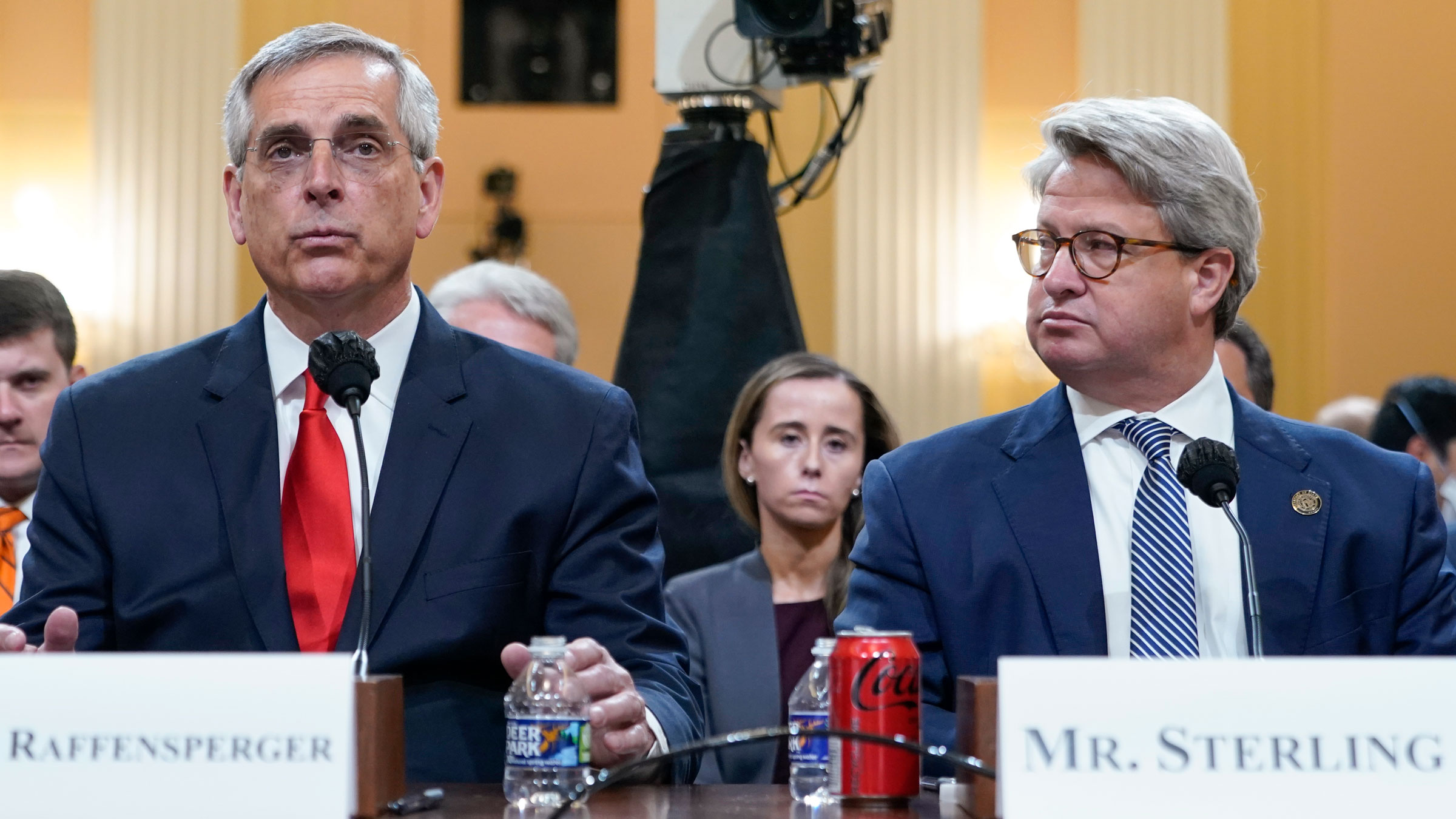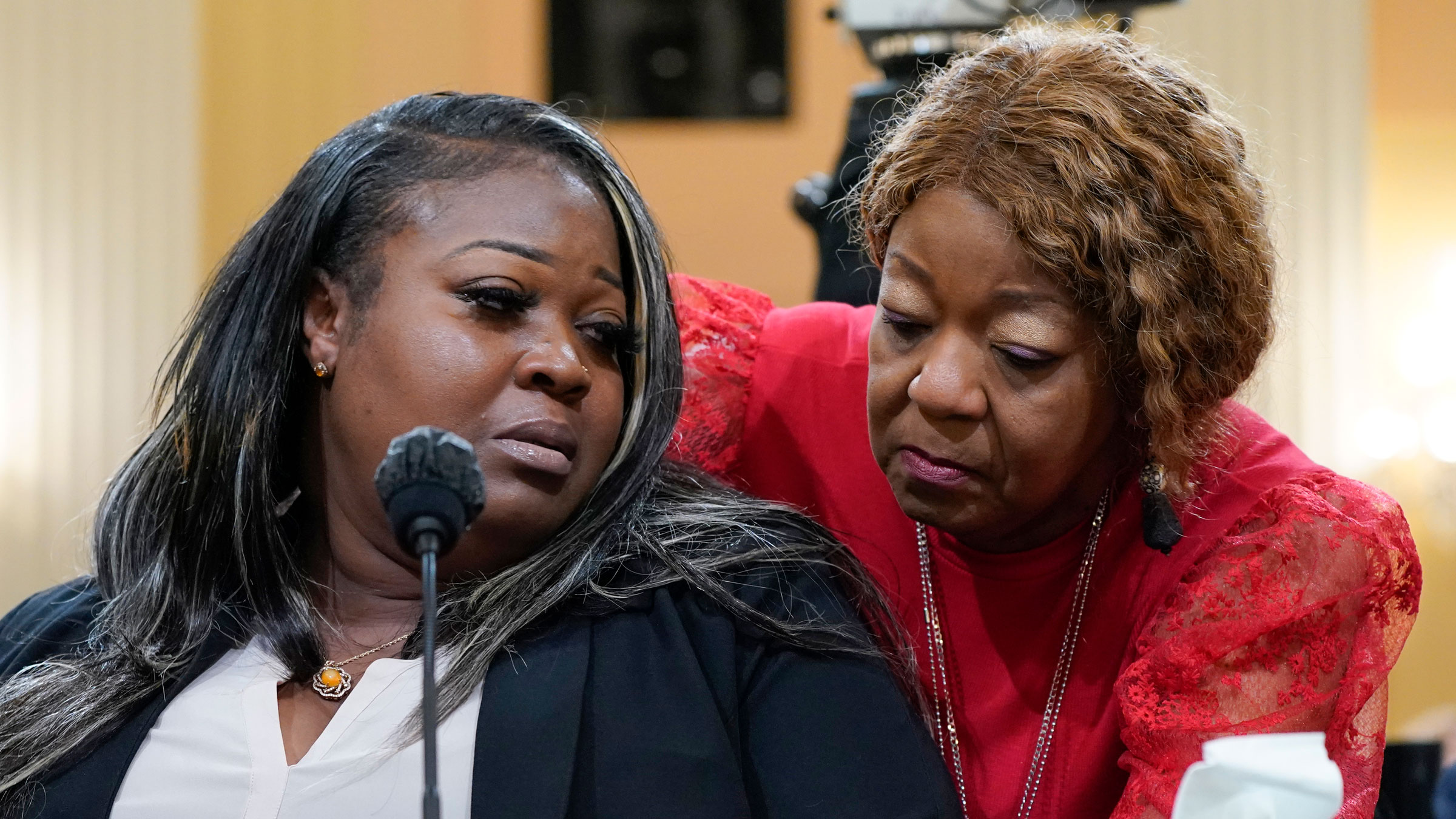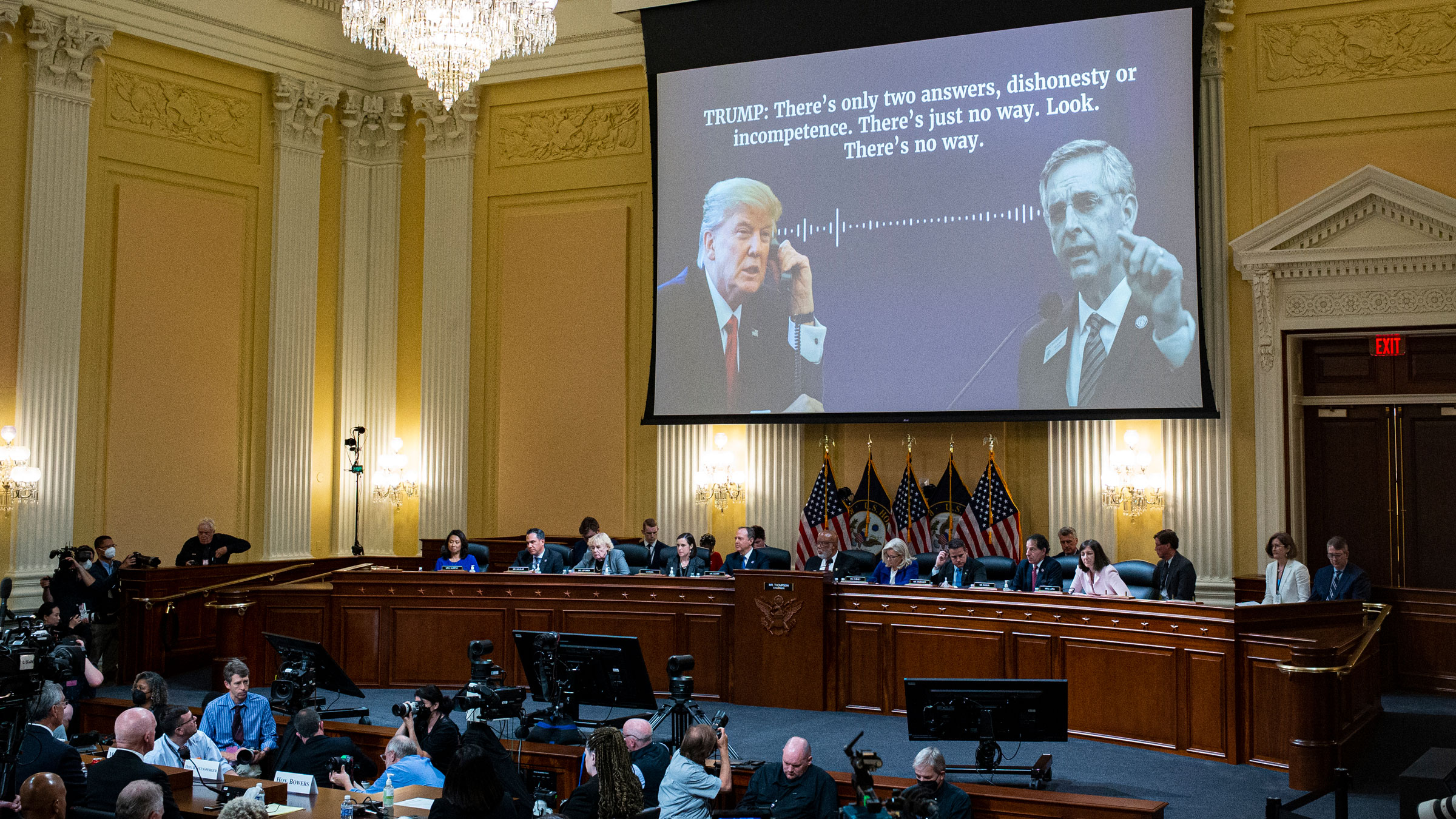
The latest hearing before the House select committee investigating the Jan. 6 insurrection revealed new details Tuesday about how former President Donald Trump pressured state officials to help him overturn the 2020 presidential election.
The panel featured testimony from three Republican officials who were all on the receiving end of Trump's outreach after the election: Georgia Secretary of State Brad Raffensperger, his deputy Gabe Sterling and Arizona House Speaker Rusty Bowers.
Like previous hearings, these officials testified about their unwillingness to participate in legally dubious schemes that would undermine the election, including efforts to subvert the Electoral College with fake pro-Trump electors.
The panel's next hearing is scheduled for 3 p.m. ET on Thursday and will focus on Trump's attempt to use the Justice Department to back his election disinformation.
Here are some of the key takeaways from Tuesday's hearing:
Republican witnesses tie Trump directly to fake electors effort
Multiple witnesses told the committee that Trump was personally involved in the effort to put forward slates of fake electors in key battleground states — a key part of the broader effort to overturn Biden's legitimate election victory.
CNN has previously reported on the role that key Trump allies, including his former attorney Rudy Giuliani, played in overseeing the effort but witnesses revealed new details Tuesday about how the former President himself was not only aware of the push, but seemingly endorsed it.
Bowers told the committee that he received a call from Trump and Giuliani during which they urged him to go along with a plan to put forward illegitimate, pro-Trump electors from the state.
"I told them I did not want to be used as a pawn," Bowers said on Tuesday, recalling what he told Giuliani and Trump on the Nov. 22, 2020 phone call.
Committee reveals new details about how congressional Republicans helped Trump's efforts to overturn election
Tuesday's hearing featured new details about two congressional Republicans played a role in Trump's sprawling efforts to try to overturn his 2020 election loss. The first was Republican Rep. Andy Biggs of Arizona, who called Bowers on the morning of Jan. 6, 2021, asking him to support decertification of his state's electors for Biden.
"I said I would not," Bowers testified on Tuesday.
The second occurred several hours later, minutes before then-Vice President Mike Pence gaveled in the joint session of Congress to certify the electoral votes. According to text messages obtained by the committee, an aide to GOP Sen. Ron Johnson of Wisconsin asked an aide to Pence how Johnson could hand-deliver him the fake slates of Trump electors from Michigan and Wisconsin, which had not been sent to the National Archives. Pence's aide responded that Johnson should "not give that to him."
Both the effort to decertify Biden electors and put forward fake Trump electors were part of the Trump team's scheme to stop the congressional certification of the election on Jan. 6. The role that Trump's allies in Congress played have been of interest of interest to the committee, which has subpoenaed five House GOP members, including Biggs and House Minority Leader Kevin McCarthy.
Witnesses describe how Trump's lies had serious consequences — including threats
The committee's hearing underscored how the lies about the election spread by Trump and his team spiraled into multi-faceted disasters for the state officials forced to grapple with them.
All of the witnesses who appeared at Tuesday's hearing talked about the serious repercussions they faced as a result of the false claims that Trump and his team put forward. That included pressure to help in the effort to overturn the election, the repeated attempts to try to debunk the claims and the threats they faced from pro-Trump supporters for refusing to go along with Trump's efforts.
Bowers delivered emotional testimony about "disturbing" protests outside his home. He got emotional as he discussed the impact protests at this house had on his wife and his daughter, who was at home gravely ill at the time and was "upset by what was happening outside." He also read passages from his personal journal about friends who had turned on him.
Raffensperger described the attacks that his wife faced after the election, which he said he suspected was an attempt to pressure him to quit. Schiff cited Raffensperger's book, in which he wrote, "I felt then and still believe today that this was a threat."
Republican officials take the lead testifying against Trump
Yet again, the Democratic-run January 6 committee turned to Republican officials to make their case against Trump. In fact, the majority of the in-person witnesses so far have been Republicans.
Tuesday's hearing featured in-person testimony from three conservative Republicans who endorsed Trump in 2020. The committee also played deposition clips from two other GOP officials: Michigan State Senate Majority Leader Mike Shirkey and Pennsylvania House Speaker Bryan Cutler.
They all provided damning testimony against Trump, describing how he repeatedly tried to twist their arms and cajole them to overturn the results. They also described the threats and pressure they faced from Trump supporters who believed his election lies and protested outside their homes and offices and bombarded them with calls and text messages.
Top Arizona Republican refutes Trump in real-time
Bowers said under oath Tuesday that Trump lied about him in a press release that came out shortly before the hearing started, where Trump claimed Bowers told him in November 2020 that he believed the election was rigged.
In the statement, Trump attacked Bowers and described a call they had after the election, claiming, "during the conversation, he told me that the election was rigged and that I won Arizona." Trump added, "Bowers should hope there's not a tape of the conversation."
Under questioning from Schiff, Bowers confirmed that he "did have a conversation with the president, but that certainly isn't it."
Emotional testimony highlights victims of Trump's disinformation
Later in the day, the committee heard from Wandrea "Shaye" Moss and her mother Ruby Freeman, who were election workers in Atlanta during the 2020 election. Trump, Giuliani and other GOP figures put them both at the center of their unhinged lies about massive voter fraud in Georgia.
Coverage of Trump's presidency often focused on his words and lies. But the emotional and deeply personal testimony from Moss and Freeman flipped the script and showed the human toll of Trump's lies.
They described in devastating terms how Trump's lies essentially destroyed their lives.
Moss said she felt "helpless" and stopped giving out her business card because "I don't want anyone knowing my name." Her mother said she gets "nervous when I have to give food orders" because someone who believes Trump's lies might recognize her name. She said she felt "homeless" while she lived in hiding for two months after the FBI told her she wasn't safe at home.
"I have lost my sense of security, all because of a group of people, starting with (Trump) and his ally Rudy Giuliani, decided to scapegoat me, and my daughter, Shaye, to push lies about how the election was stolen," Freeman said in a videotaped deposition, a clip of which was played during Tuesday's hearing.


